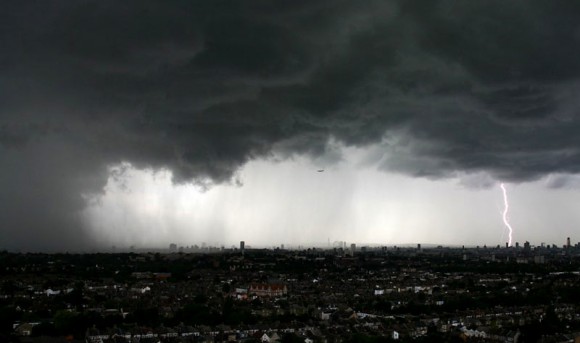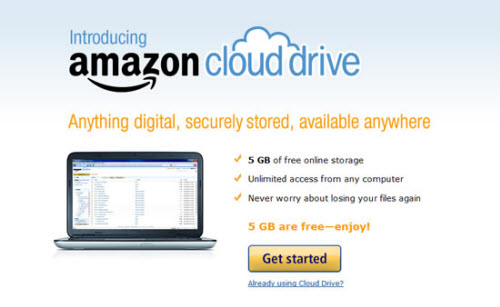The word “Cloud” keeps popping up everywhere in the computing world, and out of it, and it is not in reference to the weather, people!
As a rumored disc-drive-less MacBook Pro (Techland) from Apple has just surfaced, I felt it about time to sort out the infamous “Cloud” that Apple, Google, and Amazon seem to be forcing upon us, the consumer.
The “Cloud” is actually not that hard to wrap your head around; simply put, it is a virtual hard drive for data on the Internet.
What does that mean? Well, using the “Amazon Cloud Drive” as an example, users can upload any files (for example: documents, pictures, mp3 music, e-books, and videos) from the computer hard drive to the “Cloud” virtual drive online.
Amazon gives their users 5GB of space for free (more space starts at twenty bucks a year for 20GB and goes up to a thousand bucks for 1TB per year).
The benefits of a “Cloud” drive are that users can access their files anywhere, from almost any smart device, and the consumer’s own hard drive, on their Mac at home, can be wiped clean to gain more space. As a backup, the “Cloud” can also ensure that a fried hard drive or exploded CD-drive will not be the demise of precious files.
The “Cloud” is part of a growing trend in eliminating moving parts from consumer computing technology. Hard drives (which are mechanized, folks, if you did not know) are being replaced with solid-state memory (think of SD camera cards, but bigger), and with the MacBook Air, and possibly their next MacBook Pro models, Apple is leaving out disc drives altogether.
If there are no discs, then there is only streaming (like the easily rented movie source Netflix) and downloading, which Apple just used to exclusively provide their newest operating system, OSX Lion. There is nothing to break, scratch, or lose.
The downside to “Cloud” is rarely discussed, but should be obvious: users have to be online to use it. If the Internet goes down–and it does do that, does it not–then one is left stranded without their sacred Word documents, or their even more holy iTunes library.
And then there are the security threats. Even with a Mac, it is hard enough to keep hackers out of one’s personal computer. But do you really want to depend on Amazon’s “Cloud” (for example) to protect all of your most coveted and life-long work and files on the Web? Large companies, like Sony, get hacked all the time, and it is not yet safe to trust these with your life savings, so to speak.
As a backup, “Cloud” serves a great purpose (if you can trust the “Cloud” people with your passwords), but as the only way to keep your vitals I think the “Cloud” could blot out the sun and ruin the potential day with calamity.








